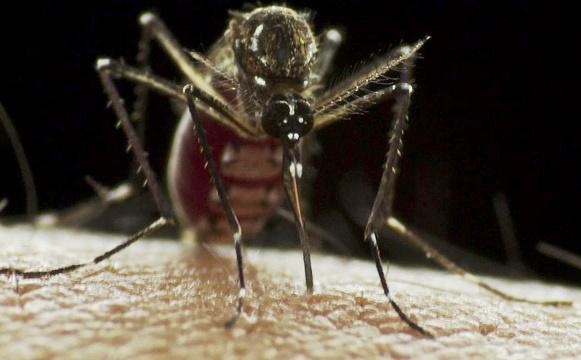Today two studies describe the prevalence and scope of Zika infection in mosquito species in Brazil and Mexico, with one study suggesting the virus was in Rio as early as 2012, 2 years before human cases.
Evidence for 2012 virus presence
A study published yesterday in Emerging Infectious Diseases describes deep gene sequencing performed on more than 400 Aedes aegypti mosquitoes captured in the Manguinhos neighborhood in Rio de Janeiro during the height of the Zika outbreak, from February 2014 to June 2016.
The results of the genetic analysis suggest the insects were infected with the virus at least 2 years before the first human case appeared in the city.
"We showed the presence of Zika virus in engorged Ae. aegypti mosquitoes trapped in Rio de Janeiro before the first case of autochthonous Zika virus disease was diagnosed in the city," the authors said. "This finding emphasizes the importance and benefit of routine entomologic surveillance programs to public health in terms of ensuring timely implementation of disease prevention and control measures."
Five mosquito species show evidence of Zika
In related news, a study published yesterday on the pre-publication server bioRxiv shows that five different mosquito species—Ae aegypti, Ae vexans, Culex quinquefasciatus, C coronator, and C tarsalis—contained Zika virus in their salivary glands.
Mexican researchers collected the insects in Mexico, and the findings suggest that each species is capable of Zika transmission.
The mosquitoes were collected over 5 days in Guadalajara in November 2016. A total of 579 mosquitoes were evaluated for the presence of the Zika virus.
Olympics risk, Zika in infants, Texas cases
Another brief study in Emerging Infectious Diseases showed that 17 out of 21 tested members of Spain's Olympic team were negative for the Zika virus after the 2016 Games in Rio de Janeiro despite having symptoms, suggesting there was limited risk of transmission. Blood tests were conducted in Spain 20 and 30 days after the Olympics.
Four athletes had false-positive results, while 17 tested negative. All had received counseling before the Games on Zika transmission, including on safe sex practices.
Elsewhere, the National Institute of Allergy and Infectious Diseases (NIAID) will be conducting field tests in Guatemala to determine if the Zika virus can attack infants' brains, the agency said in a press release yesterday from the National Institutes of Health (NIH), which oversees the NIAID. Zika is still widely circulating in Guatemala.
The study will look at children 3 months and younger to determine what if any impact early Zika infection has on developing brains. The NIAID hopes to have preliminary results available in a year.
"This natural history study of Zika among Guatemalan children promises to yield valuable insights into acute and longer-term outcomes of infection,” said NIAID Director Anthony S. Fauci, MD. "It is imperative that we understand the potential neurologic and neurodevelopmental outcomes of Zika virus infection in children infected in infancy and early childhood."
Finally, a Texas health group has retracted an earlier report that said there were six new cases of Zika in the Houston area, the Houston Press reported yesterday.
On Jun 15, representatives from Legacy Health Group in Houston said six pregnant women had tested positive for the disease. The claim was not corroborated by the US Centers for Disease Control and Prevention, and Legacy has apologized for the error.
See also:
Jun 19 Emerg Infect Dis early evidence study
Jun 19 bioRxiv study
Jun 19 Emerg Infect Dis Spain study
Jun 19 NIH news release
Jun 19 Houston Press story





















